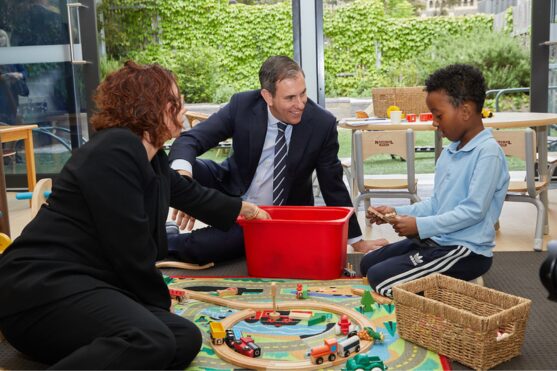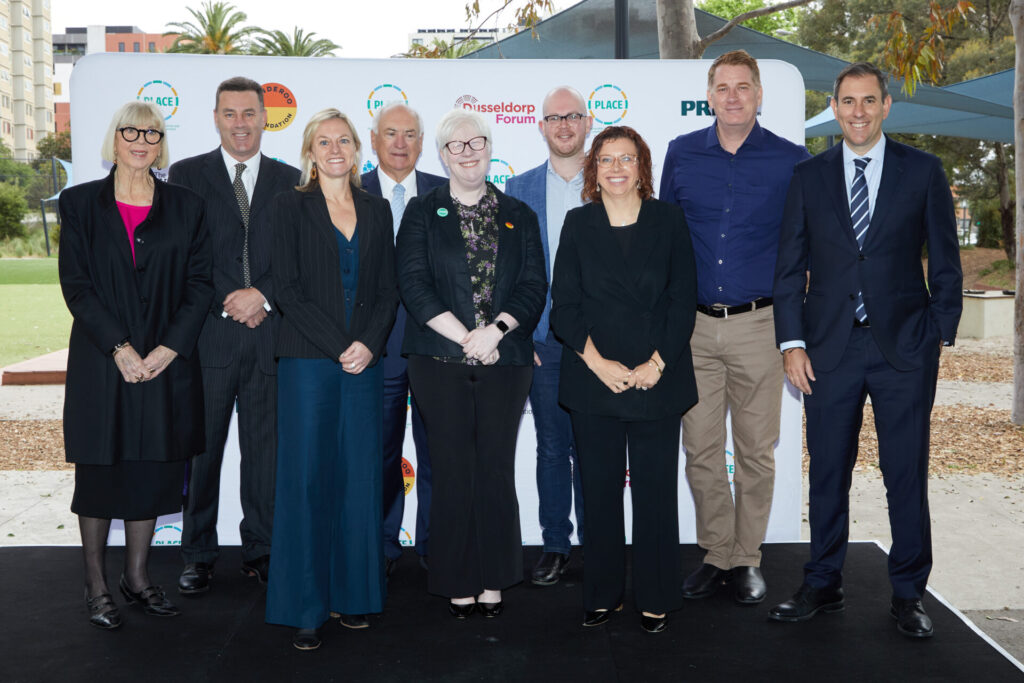PLACE: Philanthropy and government partner to empower communities

Philanthropy is partnering with the federal government to develop a national, independent, not-for-profit organisation dedicated to supporting the needs and aspirations of local communities and addressing entrenched disadvantage. Five of Australia’s leading philanthropic bodies have matched the government’s investment of $19.3m over five years to establish Partnerships for Local Action and Community Empowerment (PLACE), it was announced last week.
The philanthropic partners are Minderoo Foundation, Paul Ramsay Foundation, The Ian Potter Foundation, the Bryan Foundation and the Dusseldorp Forum. Social Services Minister Amanda Rishworth and Treasurer Jim Chalmers announced PLACE on 30 October at Our Place at the Carlton Learning Precinct in Melbourne, together with representatives of philanthropic funders and community practitioners.
PLACE will support hundreds of communities and initiatives nationwide, working with local communities to address complex and persistent socioeconomic barriers. PLACE will initially focus on place-based initiatives in four priority areas, each including a dedicated First Nations focus. They include entrenched socio-economic barriers, early years childhood development, employment support programs and Australia’s energy transition to net zero.

Amanda Rishworth, Minister for Social Services, said: “Our Government is pleased to be part of this unique partnership with philanthropy to help empower communities and the people who live in them.
“The need for PLACE emerged from community, which called out the fragmented nature and widespread gaps in local capability of place-based work and the lack of shared learning and best practice solutions to make progress locally.
“I’m excited to see what comes out of PLACE to help those communities and Australians experiencing disadvantage that need it most to thrive.”
Place-based approaches refer to programs that bring together residents, community groups, government services and others in a particular location to develop a shared understanding of an issue, a shared vision for the future, and a shared commitment to action and change.
PLACE recognises that there are disadvantaged communities around Australia where a national approach on its own will never be enough. The NFP will be about listening to and empowering local leaders, working with communities and designing services in a way that meets their bespoke needs.
PLACE, which will begin operations in early 2025, will be governed by a community accountability model redefining how communities and national structures collaborate for enduring impact. Although operating nationally, it will be led by and accountable to the communities it serves.
Professor Kristy Muir, Paul Ramsay Foundation CEO, said establishing PLACE was an exciting moment for driving positive impact in local communities. “This initiative builds on a long history of collaborative, community-based projects across Australia, bringing together knowledge and experience to help strengthen communities.
“PLACE aims to better support and elevate existing work, share successful practices and inspire new ways for communities to envision and lead their own futures. Place-based approaches understand that complex social problems cannot be solved through isolated services alone. They also listen to community, work together, share and learn from each other to address the conditions that help ensure people and places have what they need to thrive. We are excited to partner with government on supporting this important initiative.”
PLACE Interim CEO Luke Craven said governments needed to share decision-making with local communities and other stakeholders to create lasting change on complex issues. “We can see the power of place-based approaches from the inner-city and suburbs to regional centres and remote communities.
“Good place-based approaches unite communities with government and other stakeholders around a shared understanding of complex problems and a shared commitment to action. PLACE will empower practitioners and drive better community-owned responses to complex problems.
“PLACE will be an organisation that embodies place-based principles around evidence, data, community engagement, innovation, learning and accountability to the community.”
Place-based programs in Burnie, Tasmania, have helped increase Year 12 completion from 56% in 2011 to 86% in 2020, and helped reduce unemployment stemming from youth education and employment connection. PLACE will provide the forum and practical tools to replicate the successes of these initiatives in more communities and to enhance existing initiatives.
The government investment builds on the $200 million Targeting Entrenched Disadvantage package introduced in the 2023-24 Budget.
Treasurer Jim Chalmers said: “This is a passion of ours because too many kids in communities like mine are trapped in the cycle of intergenerational disadvantage.
“Place-based support has and can have a profound impact, and now more Australian communities will benefit from these kinds of initiatives.”